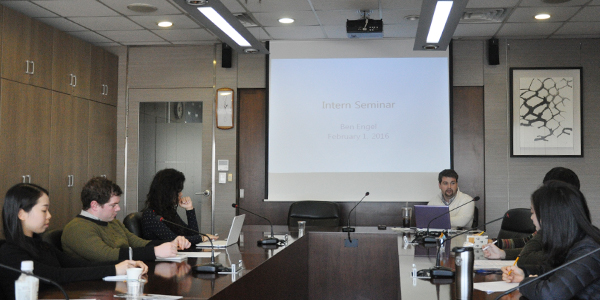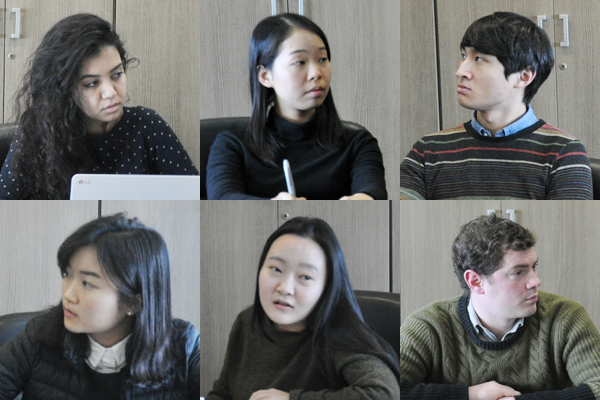EAI has sought to create an environment in which our interns can feel a sense of belonging and solidarity with the institute. To this end, EAI has been holding Intern Seminars every Monday to provide educational incentives to our dear interns.
Through these Intern Seminars, EAI is hoping that our interns can participate more actively and freely in our institute’s activities and acquire new knowledge that they may not encounter at their schools. Also, we hope these events contribute to developing a long-term relationship between EAI and our interns by providing opportunities to learn, expand their networks with other young scholars while seeking to improve communication with EAI fellows.
As a part of the Intern Seminar program, Research Fellow Benjamin A. Engel hosted a roundtable discussion titled Developmental state: New model for Myanmar? The presentation offered the opportunity to students to discuss the developmental state model, with a particular focus on Myanmar’s situation.
Presenter
Benjamin A. Engel, Program Officer, Peace and Security Research Unit
Participants
Lamyae Dahbi, Sungkyunkwan University
Gordon Gatlin, Yonsei University
Jihye Jeong, Seoul National University
Hyeonseong Park, Korea University
Jin Young Park, Ewha Womans University
Sola Kim, Kwangwoon University
Minji Kim, Hankuk University of Foreign Studies


| Summary of the Event |
Writer
Lamyae Dahbi, Peace and Security Unit Intern (Sungkyunkwan University)
This week’s Intern Seminar was conducted by Benjamin A. Engel. The interns engaged in a lively debate about the developmental state model in Myanmar following the general elections held in November 2015.
The discussion revolved around the developmental state model and the capacity of civil society to build a model for sustainable economic development. The interns shared their own vision about a suitable development path for a country emerging from a long period of military rule, as well as the role of national leaders in shaping the course of such development. Opinions ranged from following previous growth and developmental state models from the experience of some Asian countries - such as Taiwan, the Republic of Korea and Japan - or build a new model and find their own path of development.